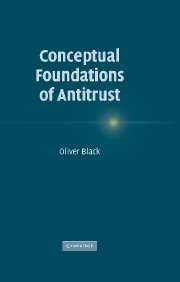Preface
Published online by Cambridge University Press: 08 July 2009
Summary
That slim and dispiriting publication Jobs for Philosophers made particularly brief and dismal reading in 1987, when I got my philosophy doctorate. The ratio of available posts in university philosophy departments to the people applying for them was said to be about one to 300. Assuming therefore that, even if I found such a post, it would be temporary and in the sticks, I proposed to myself a choice of non-academic jobs: an easy one that would leave me the time and energy to pursue philosophy in my free time or a challenging one that would absorb the energy I would otherwise have spent on philosophy. Partly because challenging jobs tend to be better paid, I chose the latter. As philosophers often do, I picked the law, and I now practise antitrust law and regulatory law. (A colleague tried to persuade me to go into tax law on the ground that it is ‘metaphysics with fees’.) The work is often challenging, but the philosophical itch persisted, so I have come to divide my time between law and philosophy. This book, a philosophical study of antitrust, thus connects my two halves.
The book is a mixture of new work and a reworking and expansion of earlier material: ancestors of the text are cited in the bibliography at the end.
- Type
- Chapter
- Information
- Conceptual Foundations of Antitrust , pp. vii - viiiPublisher: Cambridge University PressPrint publication year: 2005



